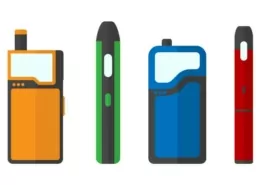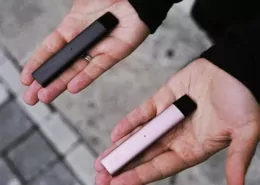Will Texas Keep Kicking Kids Out of School for Vaping? DAEP Debate Rages
Texas lawmakers divided on whether to ease or strengthen mandatory DAEP placement for students caught vaping, amid concerns over effectiveness & fairness.
Texas lawmakers are currently debating the future of a controversial state law that mandates students caught with e-cigarettes on campus be removed to a disciplinary alternative education program (DAEP). The strict two-year-old rule has led to a significant spike in students being kicked out of their regular schools, prompting pushback from educators, some politicians, and public health officials who question its effectiveness and fairness.
E-cigarette offenses were the fourth most common reason for student discipline in Texas last year, with over 32,000 violations reported, resulting in more DAEP placements than at any point in the past decade. Educators like Jessica Branch, Wylie ISD chief of staff, argue the mandatory DAEP placement leads to “unnecessary removals,” causing students to lose valuable instruction time with their regular teachers.
Initially, House Bill 6, a broad rewrite of the state’s discipline code, aimed to eliminate the mandatory DAEP provision for vaping. However, the Senate appears to favor a stricter approach. A Senate education committee is considering a version of the bill that would not only keep DAEP placement mandatory but also close a loophole allowing “District of Innovation” schools to opt out of the state discipline law. Many districts, including Houston ISD, have used this designation to handle vaping incidents with on-campus measures like counseling instead of automatic DAEP removal.
“Texas is diverse, and a one-size-fits-all mandate doesn’t always serve all of our communities. Local control would be much appreciated in this area,” Branch told lawmakers.
Concerns about the current mandate’s rigidity were echoed by Sen. José Menéndez (D-San Antonio), who called for “common sense flexibility,” especially for young students or first-time offenders, citing hypothetical scenarios where a child might innocently bring a vape to school. DAEPs are typically reserved for serious offenses like selling drugs or assault, and the vaping mandate has pushed some campuses to capacity.
Public health officials and juvenile justice advocates argue that mandatory DAEP referrals fail to address the root cause of nicotine addiction among youth. Sarah Reyes of the Texas Center for Justice and Equity stated, “DAEPs are already overwhelmed with students removed for vaping,” calling instead for more educational and treatment resources.
Sen. Charles Perry (R-Lubbock), leading Senate discussions on the bill, acknowledged the Legislature is “working on the vape issue at multiple levels,” including a separate proposal he authored to ban vape pens designed to resemble school supplies or toys. While expressing belief that consequences can change behavior for most, he conceded that addiction presents a “different conversation.” Perry indicated openness to further discussions on the bill’s direction.
With less than a month left in the legislative session, lawmakers must reconcile the differing House and Senate approaches to school discipline and student vaping, balancing a desire for strict deterrence with calls for more nuanced, locally controlled, and health-focused interventions.
- Malaysia Negeri Sembilan Backs Vape Ban, Awaits Clear Laws - August 5, 2025
- Is It Illegal to Vape or Smoke While Driving in Massachusetts? - August 5, 2025
- Austria Plans to Ban Disposable E-Cigarettes - August 5, 2025








